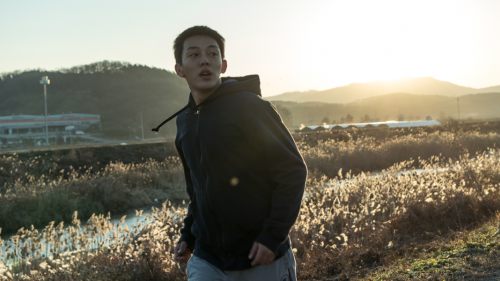TIFF 2018 Review: RED JOAN Burns Slowly But Strikes Sharply
Trevor Nunn has managed to weave together a narrative of a woman who sparks the first ember of respect I have ever come close to feeling for a spy smuggling information to the KGB. Red Joan takes its time telling the story of the real Melita Norwood, who supplied the Russians with key intelligence that enabled them to create their own atomic bomb, by allowing us to get an intimate view from the lens of a real woman’s life during the war.
Red Joan shifts back and forth between current day (the year 2000 to be exact) Joan Stanley as she’s being questioned by both the FBI and her son, and World War II Joan Stanley as she navigates her journey as a young woman growing into herself, her ideals, her work, and her own opinions on the war. The weary charm of Judi Dench combines with the subtle innocence and brilliance of Sophie Cookson to bring us this unassuming yet sharp-witted physicist who battles against both her brains and her heart to decide where her allegiance lies.
Dench’s Joan has grown weary, but even more certain of the decisions she made during the war. Her insistence that the balance of power created by Russia’s possession of the atom bomb is coolly logical, and as she delivers her unapologetic statement on the front steps of her home with the press standing among her perfectly pruned garden. Cookson’s Joan begins the film as a fresh-faced youth, swept away by the scholarship, adventures, and romance of being a young adult at Cambridge. Both of them are poised to lose everything, and neither of them are willing to flinch at the consequences of their decision.
Lindsay Shapero’s script is razor sharp, creating a consistency between both versions of Joan, which are woven so seamlessly together by the performances, the editing, and the screenplay, that the back and forth transitions throughout the film feel more organic than jarring. The flashbacks play like a reel of memories playing in Joan’s mind as she reflects on the events presented to her by the FBI. They unfold on the screen as a journey into another time and place for both the audience and for Joan’s son, who begins to realize that the mother he thought he knew was drastically more layered than the mother sitting beside him in an interrogation room.
These memories paint a picture of a woman who made hard decisions and ultimately decided to sacrifice her own safety for the safety of her own country. As Joan navigates the war with influences all around her, she is faced with consequential choice after choice, from what man to love to what country to serve. Although her passionate affairs with Leo (a German Jewish refugee with Russian sympathy and a belief in Stalin and the Communist party) and Max (Joan’s boss at her new high-level British intelligence job developing the science behind the bomb) create tension and challenge her decisions along the way, Joan creates her own destiny and chooses a direction at each fork in the road based on her own instincts and opinions and nothing else.
Although the stakes are high throughout the entire film, the story of Joan Stanley is less of an explosion and more of a slow burn. Think more Bridge of Spies and less Red Sparrow, with much more talking and way less physical combat and carnage. Viewers looking for a high octane spy film might be disappointed in what they get here, but Red Joan never meanders. This film is a smartly designed, tightly packaged tale of one woman’s journey, the choices she makes along the way, and the far reverberating impact they had on history.



